May 19, 2025 | 10:04 GMT +7
May 19, 2025 | 10:04 GMT +7
Hotline: 0913.378.918
May 19, 2025 | 10:04 GMT +7
Hotline: 0913.378.918
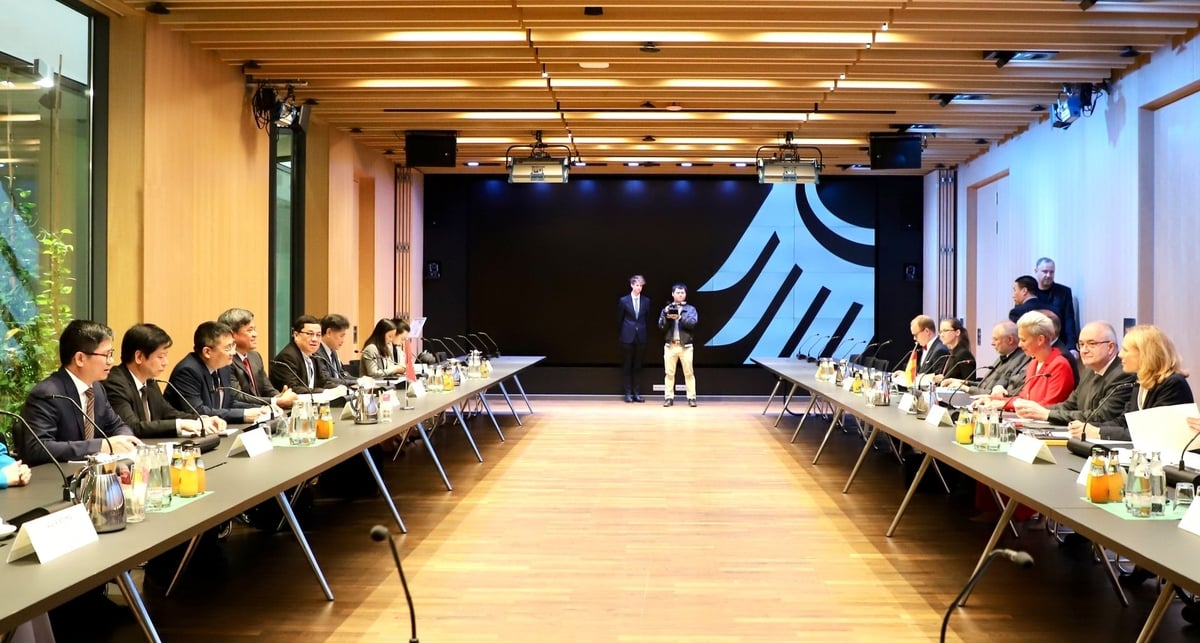
The meeting between the Vietnam's Ministry of Agriculture and Environment and the Federal Ministry of Food and Agriculture of Germany. Photo: Phuong Hoa.
On May 15–16, Deputy Minister Tran Thanh Nam led a Ministry of Agriculture and Environment (MAE) delegation to meet with the Federal Ministry of Food and Agriculture (BMEL) and Federal Ministry for Economic Cooperation and Development (BMZ) of the Federal Republic of Germany.
The visit was part of a series of events marking the 50th anniversary of diplomatic relations between Vietnam and Germany (September 23, 1975 – September 23, 2025) and over ten years of the two countries' strategic partnership.
Germany remains Vietnam’s largest trading partner within the EU and is also one of the EU’s most significant investors in the Vietnamese market. In the field of agricultural, forestry, and fishery trade, bilateral trade turnover in 2024 reached approximately USD 1.5 billion. Of this figure, Vietnam’s exports to Germany accounted for about USD 1.3 billion, while imports from Germany reached nearly USD 200 million.
By the end of the first quarter of 2025, total trade turnover in agriculture, forestry, and fisheries between the two countries stood at approximately USD 689 million, reflecting a consistent upward trend in trade activity.
“There remains considerable untapped potential and market space that both sides can jointly explore and develop,” emphasized Deputy Minister Tran Thanh Nam. “Therefore, in addition to enhancing trade cooperation, the two countries need to work together in identifying more effective and sustainable solutions that can help gradually balance the bilateral trade relationship.”
Vietnam is home to a vibrant community of more than 200.000 Vietnamese nationals residing in Germany. This community is a bridge fostering mutual understanding, friendship, and cooperation between the two nations. Referring to Germany often evokes images of world-class engineering, cutting-edge technology, precision, and high standards. According to Deputy Minister Nam, this admiration highlights the deep respect and affection that the Vietnamese people hold for Germany.
Vietnam’s MAE is one of the first governmental agencies to visit and work with the BMEL since the new government under Chancellor Friedrich Merz took office. Parliamentary State Secretary Silvia Breher hosted and held discussions with the Vietnamese delegation.
In the field of agriculture and food, Vietnam highly values the potential for cooperation in ensuring food safety across the entire production chain, enhancing vocational training with a focus on practical skills, promoting mechanization, and advancing digital transformation.
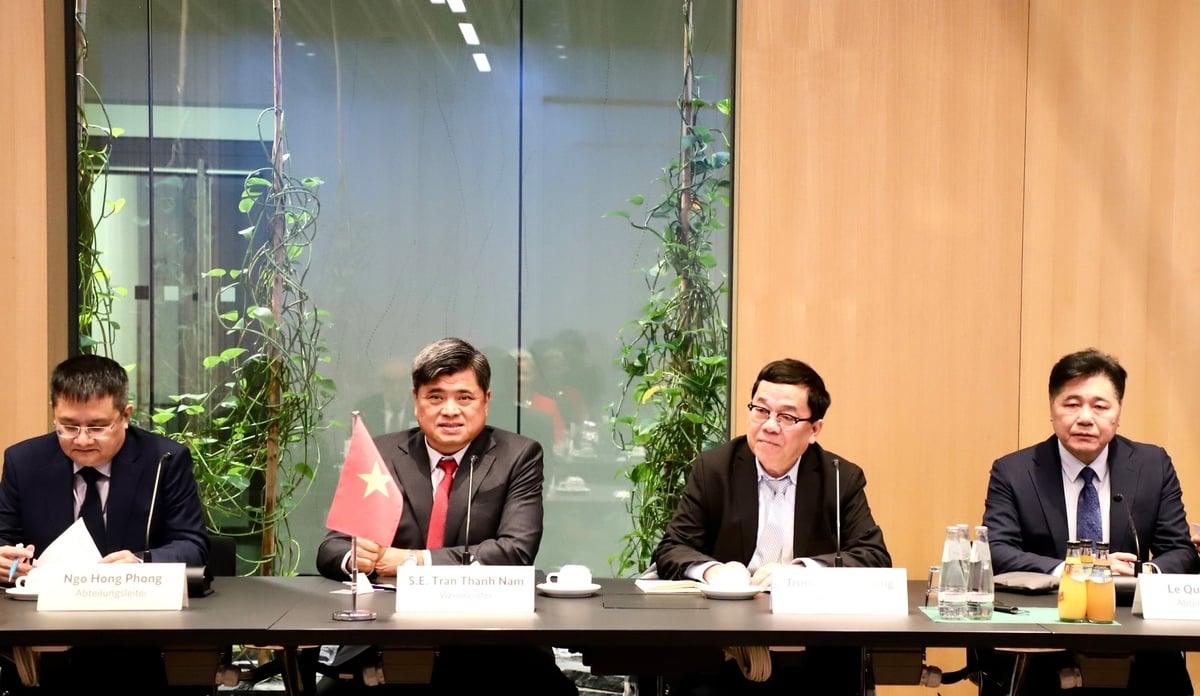
Deputy Minister Tran Thanh Nam (second from the left) presented four cooperation proposals to the Federal Ministry of Food and Agriculture. Photo: Phuong Hoa.
“Despite undergoing various socio-economic upheavals over the years, Germany has successfully sustained a stable and resilient value chain, which has strengthened the resilience of its economy. We believe that developing value chain models is currently the most effective approach,” said Deputy Minister Tran Thanh Nam.
In this spirit, Deputy Minister Nam proposed that the two ministries collaborate to develop and formally sign a Memorandum of Understanding (MoU) focusing on mechanization in key agricultural sub-sectors, specifically aquaculture, livestock production, and forestry.
The Deputy Minister also highlighted the important role of the German Agricultural Society (DLG) as a strategic partner and bridge connecting the two nations in the field of agricultural innovation and modernization.
In previous discussions, the Vietnamese Ministry of Agriculture and Environment had proposed establishing a regional center for mechanized agricultural services in the Mekong Delta. The center would serve as a hub to help farmers gain access to advanced agricultural machinery, digital tools, and innovative practices.
According to BMEL's Parliamentary State Secretary, the two sides can begin negotiations on the scope of cooperation, with a view to signing an MoU in the near future. She expressed her full support for close collaboration between the two governments and the DLG to implement joint initiatives.
She emphasized that vocational training represents a mutually beneficial model of cooperation, bringing practical value to both German businesses and Vietnamese workers. In particular, she stressed the importance of encouraging women's participation in vocational programs, in line with Germany’s active policy agenda on gender equality.
“Although German investment in Vietnam continues to grow, the proportion invested in agriculture remains modest. I hope that the cooperation between our two ministries will pave the way for increased investment by German businesses in this sector, especially in the area of food and agricultural mechanization,” Mrs Breher added.
During a working session with Mrs Bärbel Kofler, Parliamentary State Secretary to the Federal Minister for Economic Cooperation and Development (BMZ), Deputy Minister Tran Thanh Nam emphasized the importance of strengthening bilateral cooperation in the field of vocational training.
In particular, on the following day of the visit, in the city of Erfurt, Thuringia, the Vietnamese MAE signed six Memoranda of Understanding with the city’s Vocational Education and Training Center.
Translated by Phuong Linh

(VAN) Deputy Minister Nguyen Quoc Tri also expressed his hope that Cuba will soon overcome its current challenges, attain food security, and further expand cooperation with Vietnam.

(VAN) The project contributes to enhancing the resilience of communities vulnerable to the impacts of climate change, with a primary focus on local women.
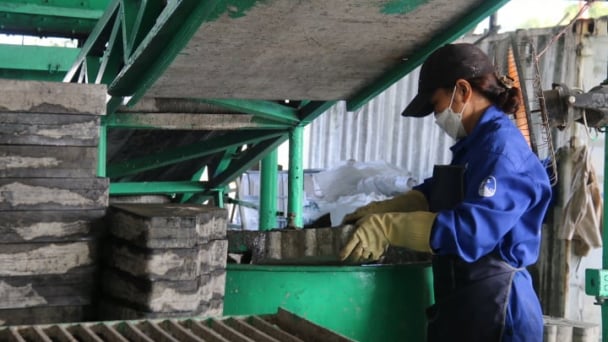
(VAN) Green materials help save energy and resources. However, after more than 10 years, Vietnam has only developed over 200 green buildings with more than 6 million square meters of floor space.
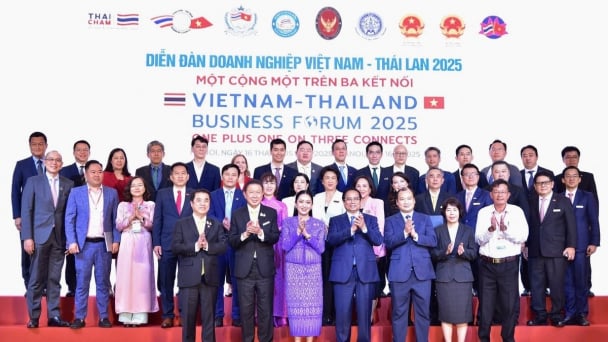
(VAN) Vietnam - Thailand Business Forum 2025: One plus one on three connects, marking a milestone in the comprehensive strategic partnership between the two nations.
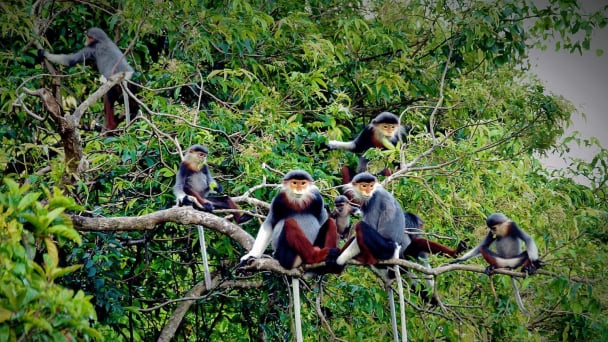
(VAN) The United Nations designated 22 May as the International Day for Biodiversity 2025 with the theme 'Harmony with nature and sustainable development.'
![Multi-channel, multi-directional Vietnamese agricultural markets: [8] A national strategy is needed](https://t.ex-cdn.com/nongnghiepmoitruong.vn/608w/files/phucpm/2025/05/15/1435-thi-truong-nong-san-viet-da-kenh-da-huongbai-8-can-mot-chien-luoc-quoc-gia-084750_728.jpg)
(VAN) The Chairman of Hung Nhon Group shared: ‘Opening up and tapping into new markets is the right and strategic direction for Vietnam's agricultural sector.’